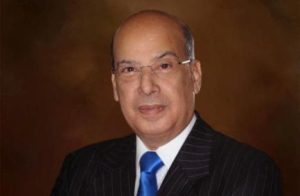
Ambassador Sir Ronald Sanders
WASHINGTON, USA — Antigua and Barbuda’s ambassador to the United States, Sir Ronald Sanders, has called on Harvard University “to demonstrate its remorse and its debt to unnamed slaves from Antigua and Barbuda” whose lives were abused to establish the Harvard Law School (HLS).
In a letter to Professor Drew Faust, president of Harvard University, Sanders recalled that the bequest of Isaac Royall Jr. to Harvard College in 1781 that was used to create the first endowed professorship of law in 1815 came from the labor of human beings enslaved on Royall’s plantation in Antigua.
The ambassador said he was sure “that Harvard University, like all other institutions with a consciousness of right, has been inspired by the recent acknowledgment and atonement by Georgetown University for the sale of 272 human beings in 1838 to save the University from collapse.”
In this connection, he told the Harvard University president, “This is an excellent example for your university to follow, particularly since the founding of Harvard Law School was premised on the brutal, violent, oppressive and dehumanizing use and sale of men, women and children from Antigua and Barbuda.”
Specifically, Sanders proposed that “one tangible way in which the University and Harvard Law School should show remorse and repay its debt in a small way, while living up to the high ideals it proclaims, is to offer scholarships to Antiguans and Barbudans on an annual basis.”
He urged the university’s corporation to implement the proposal he put to them on behalf of the people of Antigua and Barbuda.
Isaac Royall Jr., in the words of one HLS professor, was “a brutal slaveholder.” He was born into a colonial-era family of wealthy Triangle Trade merchants and owned an estimated 60 slaves. At one point, Royall and his father brokered the sale of 121 human beings in one day. Another time, they had 77 slaves burned alive at the stake following a failed rebellion.
The oldest and arguably the most distinguished chair in American legal education is Harvard’s Royall Professorship of Law. Its distinction comes not from its age or its founder, but from those who have held it. These include distinguished figures in legal education, but it is a historical fact that this chair is directly linked to a slave revolt on the island of Antigua in 1736.
Read more here.


